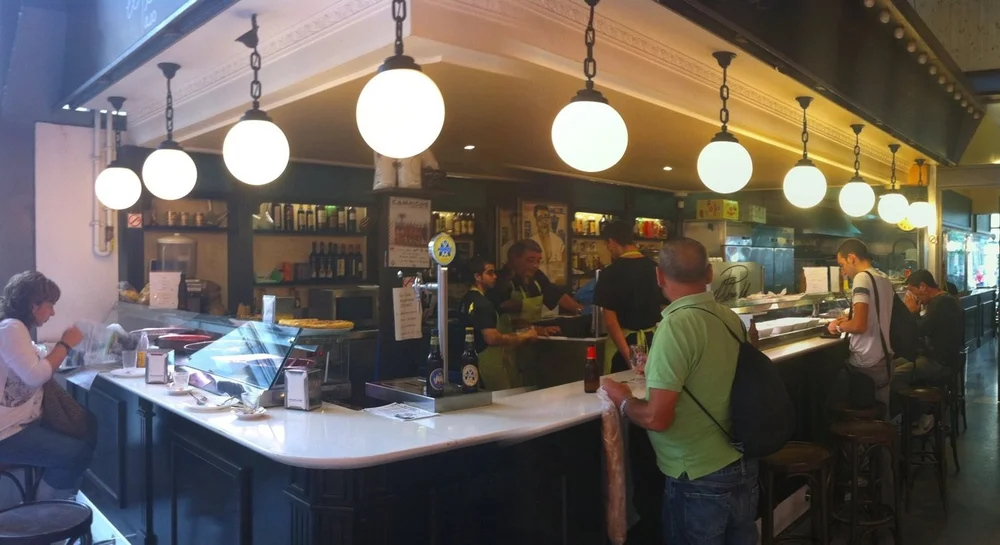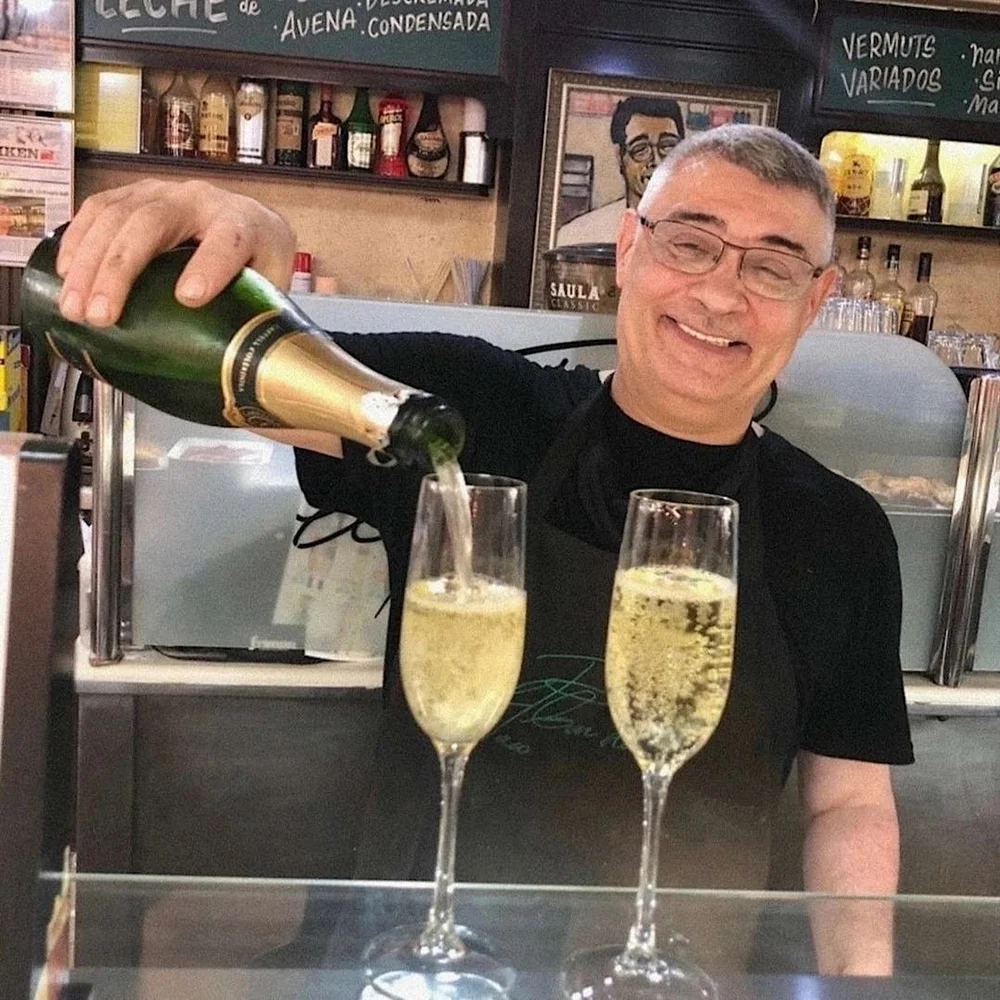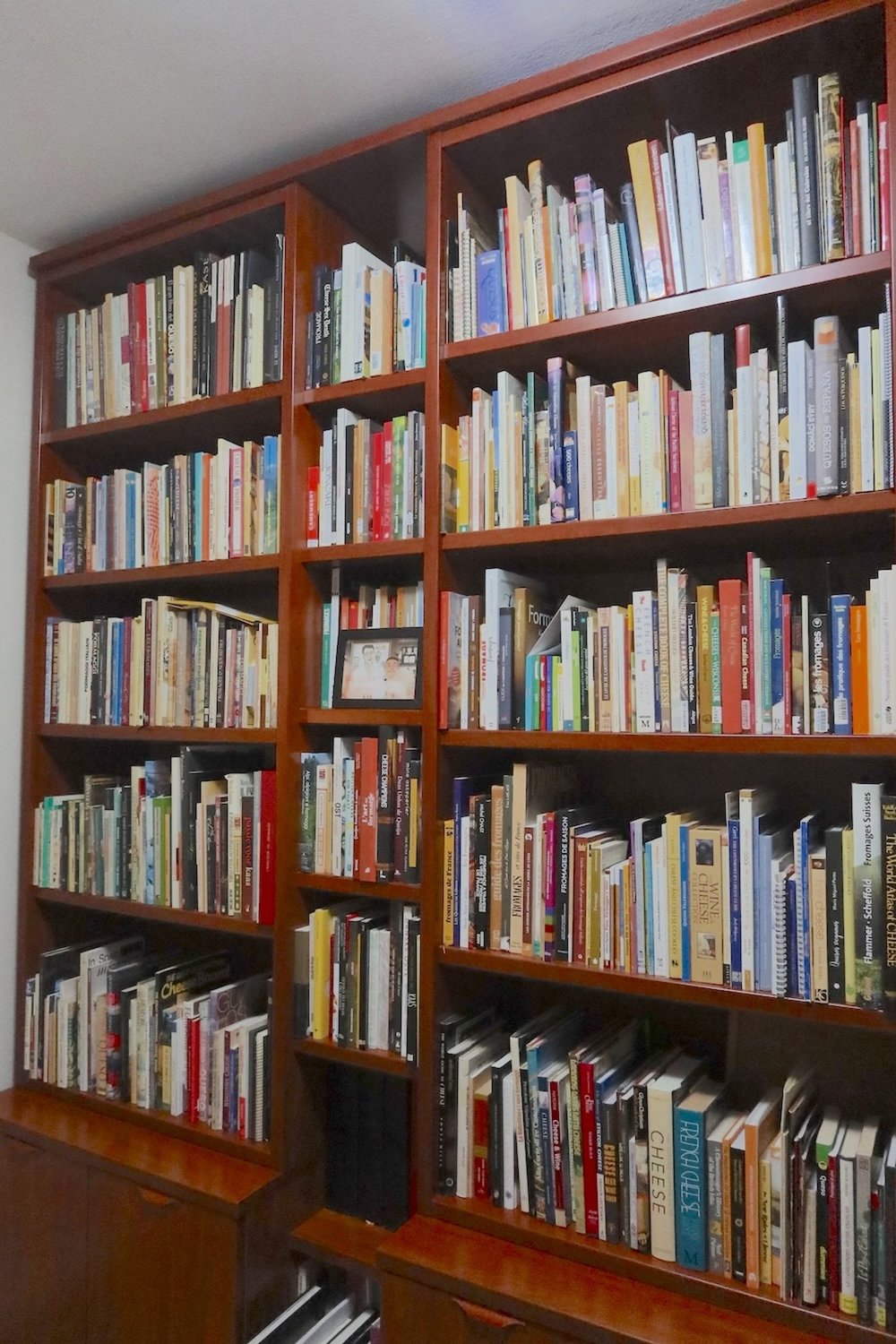Francisco Alcaide with Queso, corazón y vida
The world of cheese is populated by diverse characters who blend their personalities with their cheese expertise, bringing their unique insights and passions to the table. We have Cheese Explorers, Poets, Masons, Maids, Geeks, Spelunkers, and of course, dozens of mongers. In our close-knit community, we find experts on national dairy industries, researchers of rennet, feed, and cultures, as well as priestesses of cheese churches and running communities. Among us, we even have an amateur librarian.
Meet Francisco Alcaide, a cheese bibliophile whose collection of cheese literature stands as a testament to his unwavering devotion to the art of cheese. With over 630 volumes adorning his shelves, Francisco, based in Barcelona, may have the largest collection of cheese books in the world.
A World Class Cheese Book Collection
A couple of months ago, just after the introduction of ChatGPT, I wrote an article about the issues with AI-generated content. My main concern was that the information from these large language models often relies on marketing copy, resulting in vague articles filled with assumptions. Since then, I’ve delved deeper into ChatGPT, exploring newer versions and learning how to craft effective prompts. Although the AI now provides more up-to-date information, it often still revolves around basic, generalized knowledge. Frustrated with the information utilized by the bot, I decided to interview Francisco. We had been in contact after he posted a picture of my own book, and I learned more about his passion for cheese books.
Francisco’s collection is housed in a large bookcase at home, and he has created an archival system to identify his books and the information included in them. “For me, each book is a treasure trove waiting to be explored,” Francisco shared with me when I asked about his collection. “I’ve spent a lifetime scouring bookstores, reaching out to authors, and immersing myself in the world of cheese literature.” He is still finding new books and is excited to receive them as gifts.
How it Started
Dictionnaire des Fromages
His journey began with a French book, Dictionnaire des Fromages by R.J. Courtine, purchased in 1978. This book sparked a passion that has only grown over the decades. His library now includes volumes in Spanish, Catalan, French, English, Italian, Greek, Russian, Swedish, Norwegian, Danish, Portuguese, Estonian, German, Dutch, Walloon, and Czech, each offering a unique perspective on the art and science of cheese-making and insights into cheese culture from many European countries.
“Every book holds a piece of cheese history,” Francisco explains. “Whether it’s the tale of a humble cheese-maker or the journey of a rare artisanal cheese, each story adds depth and richness to my collection.” His books do not merely sit on the shelves; they are read, studied, and cataloged.
El Bar de Paco
Many of Francisco’s books include recipes, though he admits that only a few make their way into his kitchen. Trained as a chef and owner of a restaurant in the Mercado de la Barceloneta named “El Bar de Paco,” he told me that some of his books have recipes, but that wasn’t what sparked his interest in collecting cheese books. In his personal culinary adventures, cheese often takes center stage, but his passion for cheese literature remains more about the knowledge than the cooking.
Francisco Alcaide behind the bar
Francisco’s original dream was to create an encyclopedia of cheese—a comprehensive guide with basic, accessible information about cheeses from around the world. “I wanted to include details like the name, country, type of milk, and some interesting facts or history,” he recalls. However, as the digital age advanced, he realized that the wealth of cheese knowledge available online had surpassed his initial vision. “There are hundreds of professional books about cheese, and the information is vast and detailed. My idea, while still beautiful, seems a bit simplistic now.” I, of course, disagree, and while there is now an encyclopedia, I think there is an opportunity for revision and expansion.
An Expanding Collection
Nonetheless, Francisco continues to expand his collection, seeking out rare and hard-to-find books. “My library is a compilation of books that may not be widely known but are incredibly valuable,” he says. “The knowledge they contain is preserved and cherished.” Francisco has received books from and personally met authors such as Toni Chueca, Bruno Cabral, Toni Jerez, Enric Canut, and Ramon Roset.
Some of the books in his collection have fascinating stories behind them. For instance, the only book in Greek he has was a gift from a Purchasing Manager of a Greek shipping company. He also shared a heartwarming story about acquiring a small book about Queso de Fonfría, a cheese from a small town in Aragon, Spain. He contacted the City Council and was able to obtain a copy after they intervened with the printer. Another notable mention is a book about cheese from Andorra that took him 10 years to find, showcasing his persistence and dedication to expanding his collection.
The Future of Cheese Book Collections
Francisco Alcaide’s book shelves
As for the future of his collection, Francisco contemplates several possibilities. “I’ve thought about the value of my collection, and I know it holds significant worth,” he reflects. “But it’s not about the money. It’s about preserving this knowledge.” He has considered passing the collection to his daughters, though he acknowledges it might be more of a burden than a gift for them. Ultimately, he dreams of donating the collection to an institution that would appreciate its unique focus. “I’d love for it to be somewhere where it can be the center of attention, where people can say, ‘This is the best cheese library.'”
I have over a hundred books; at home, they also have their own bookcase. I wonder where these books will end up and perhaps we can plan for a location where many of these books will be housed for future researchers to use.
In a world increasingly reliant on digital information, Francisco’s collection underscores the enduring value of physical books. They offer a tangible connection to the past and a curated depth of knowledge that can be lost in the vast, sometimes superficial, digital landscape. As AI continues to evolve, the need for original research and publication remains vital. Francisco’s collection is not only a testament to his dedication but also a reminder of the importance of preserving and valuing specialized knowledge in its most enduring form.


